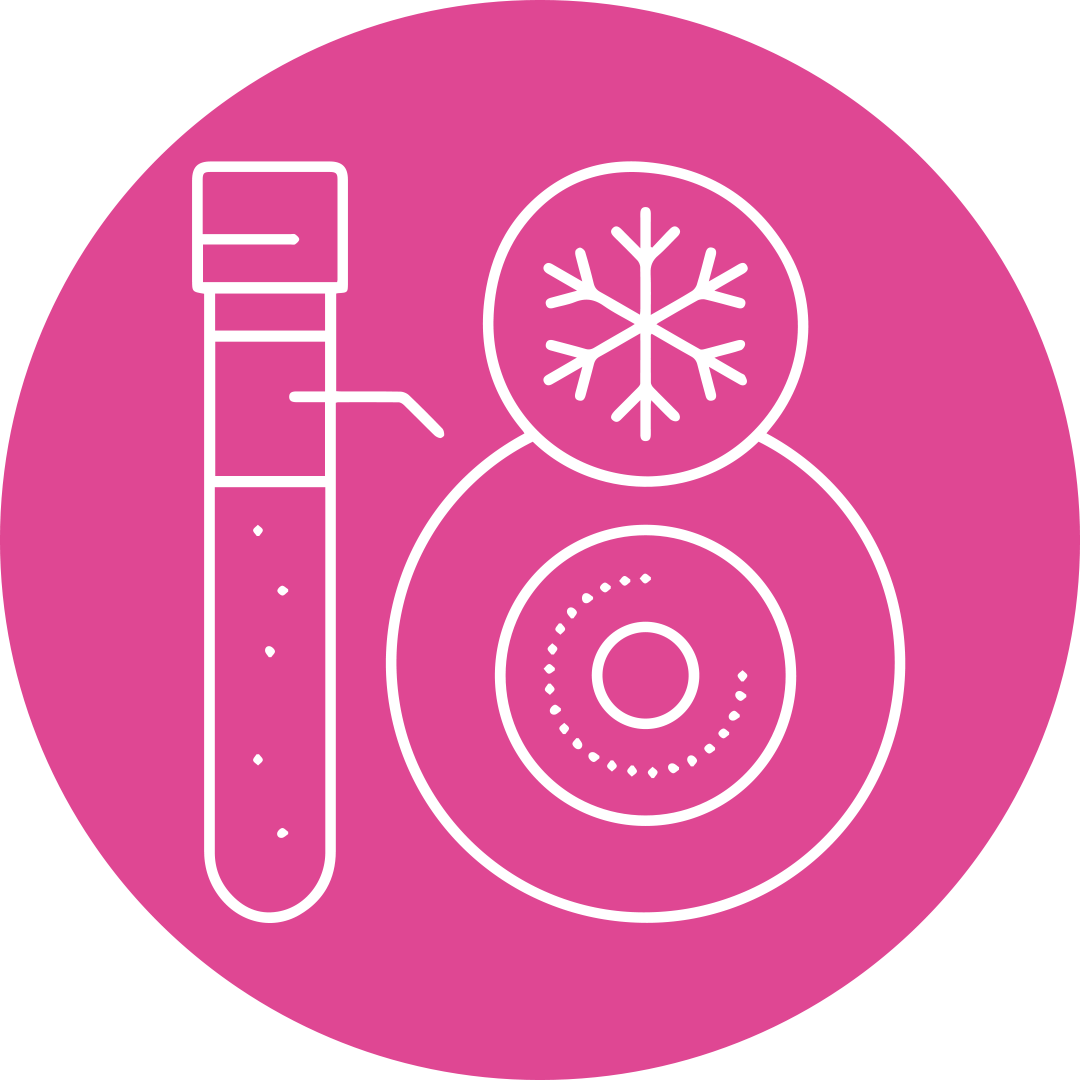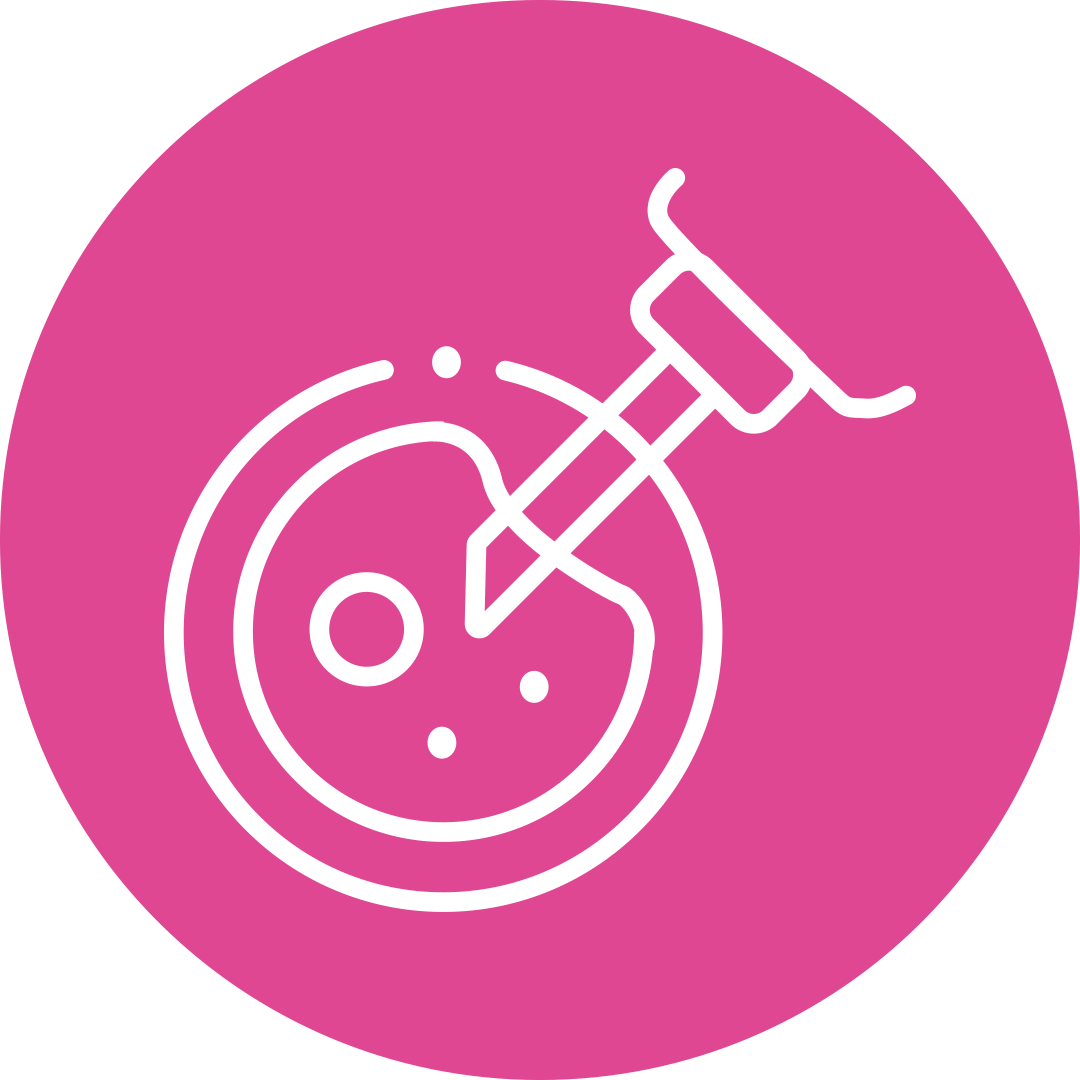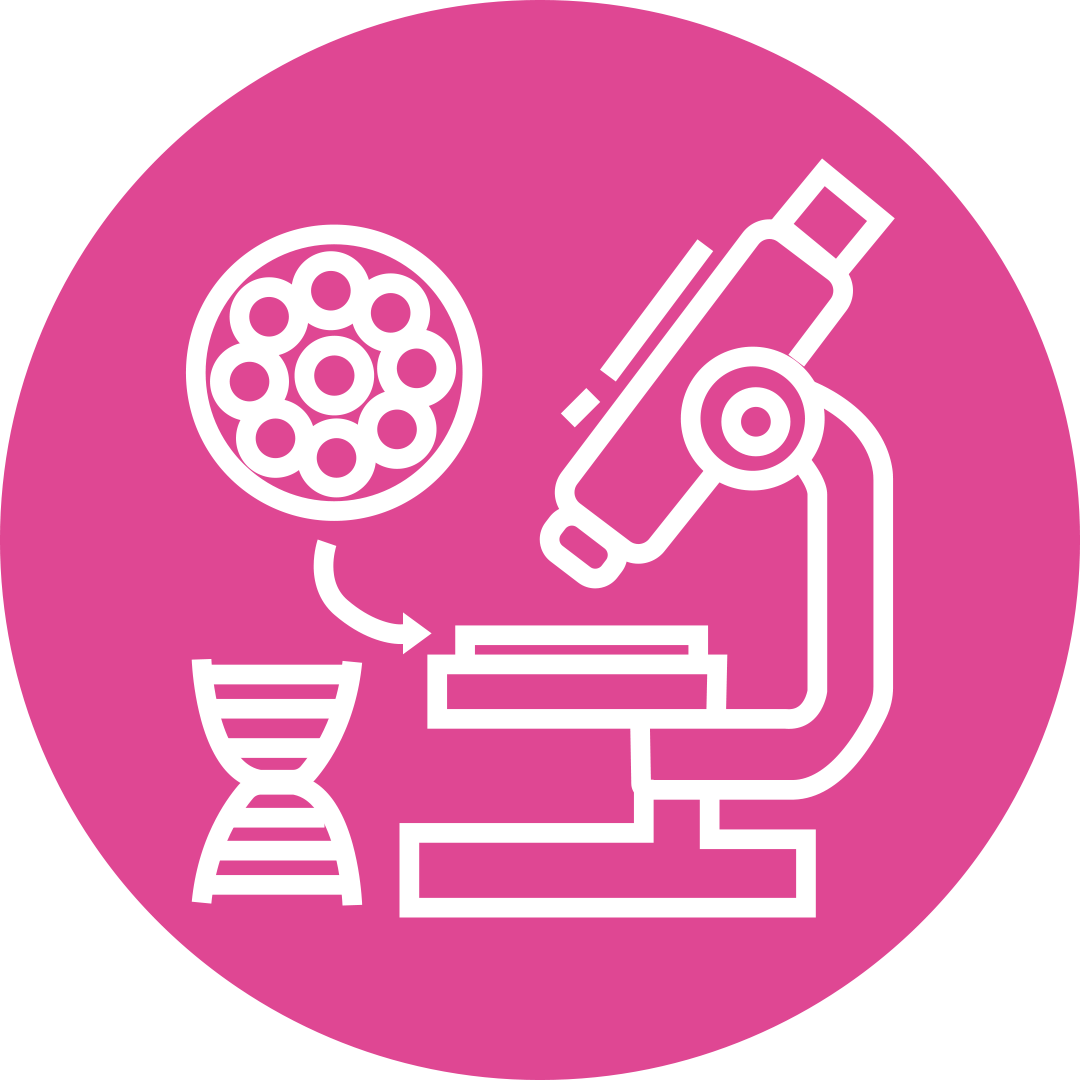ICSI(Intra Cytoplasmic Sperm Injection)
ICSI is a procedure that can be used as part of an IVF (in vitro fertilisation) treatment. In ICSI only one sperm is needed per egg retrieved, which is injected directly into the egg.
Who might benefit?
ICSI can offer real hope to couples where the male has a very low sperm count, has few swimming sperm, produces few good-quality sperm.
With ICSI, sperm do not have to travel to the egg or penetrate the outer layers of the egg. It can also be used to help couples where the male has had an irreversible vasectomy, or has no sperm in his semen due to missing tubes or blockages in his reproductive organs.
How it’s done
As with standard IVF treatment, the female will be given fertility drugs to stimulate her ovaries to develop several mature eggs for fertilisation (women normally release only one egg a month).
A sperm sample is produced. In patients where there is no sperm in his semen, the Doctor can retrieve sperm from the male surgically. In most cases the sperm is extracted with a needle from the epididymis or a testicle under anaesthetic. If this doesn’t remove enough sperm, the doctor will take a biopsy of testicular tissue, which sometimes has sperm inside. Surgical sperm retrieval is sometimes performed before the treatment cycle begins, and the retrieved sperm are frozen.
After giving the woman a local anaesthetic, eggs are removed using a fine needle (an ultrasound helps locate the eggs.) The embryologist then selects individual sperm and injects them into individual eggs. Next day the majority of eggs will be fertilised.
The procedure then follows the same steps as in IVF. One, two or occasionally three embryos are transferred into the woman’s uterus through her cervix using a thin catheter. Extra embryos, if there are any, may be frozen for future use.
What are the advantages?
This technique opens doors to parenthood that were previously closed to some couples with a male factor fertility problem. ICSI gives men with a very low sperm count or other fertility problems a chance of conceiving their genetic child.
ICSI can also be used to help couples with unexplained infertility, but experts have not found that it makes pregnancy more likely than standard IVF.
What are the disadvantages?
During normal conception, only the hardiest sperm manage to travel great distances and break through the membrane of an egg to fertilise it. Weaker sperm never make it. Because ICSI bypasses this process, critics worry about higher rates of miscarriage, and long-term health and development problems for children conceived using whatever sperm are available.
Research to date has been reassuring about most potential risks. No impact seen so far, for example, on the cognitive and motor skills of children conceived using ICSI. If you are at all concerned, talk to your consultant.
FAQ's
ICSI is a fertility treatment used alongside IVF where a single sperm is directly injected into an egg to assist fertilisation. It is often recommended for male infertility issues such as low sperm count or poor sperm motility.
ICSI is ideal for couples where the male partner has a very low sperm count, poor sperm quality, or non-swimming sperm. It is also beneficial for men who have had a vasectomy, missing tubes, or blockages preventing sperm from being present in the semen.
If no sperm is present in the semen, doctors can retrieve sperm surgically from the epididymis or testicles using a needle. In some cases, a biopsy of the testicular tissue may be required to find sperm.
While both ICSI and IVF involve fertilisation outside the body, in ICSI, a single sperm is injected directly into the egg. In standard IVF, the sperm must naturally swim to and penetrate the egg, which can be challenging for men with fertility issues.
Studies show that ICSI does not increase the risk of developmental problems in children. Research has been reassuring, with no significant impact on the cognitive or motor skills of children conceived via ICSI compared to natural conception or standard IVF.
Although ICSI helps men with low sperm quality conceive, some critics worry that weaker sperm, which would not normally fertilise an egg, could be used. There is also a slight concern about higher miscarriage rates, though research has not shown any significant long-term issues.
In some cases, ICSI may fail to fertilise the eggs. If this happens, your fertility specialist will discuss alternative treatment options, such as another ICSI attempt or considering different fertility treatments.
Yes, sperm retrieved and frozen ahead of time can be used in an ICSI procedure. Frozen sperm is thawed and prepared for injection when the female is ready for egg retrieval.
Yes, ICSI can be an option for couples with unexplained infertility, but studies show that it does not necessarily increase the chances of pregnancy compared to standard IVF in these cases.
The number of embryos transferred depends on factors like the woman’s age and embryo quality. For women under 40, one or two embryos are typically transferred, while women 40 and above may have up to three embryos transferred.
Book Your Appointment
Visit Near By Hospital
Visakhapatnam
London IVF
KGH Down Rd, beside indus hospital, Besides Lepakshi Handicrafts, Maharani Peta, Visakhapatnam, Andhra Pradesh 530002
Contact
+91 8125841249
Kakinada
London IVF
1st Floor, Induslnd Bank, near by HP Petrol bunk, Nagamalli Thota, Ramanayapeta, Kakinada, Andhra Pradesh 533003, India
Contact
+91 7842535620
Rajahmundry
London IVF
Lakkakula Rama Rao St, Gandhipuram, Rajamahendravaram, Andhra Pradesh 533103, India
Contact
+91 9110552504
Vizianagaram
London IVF
London IVF Centre, Matham Veedhi, near Vijaya Medicals, Fort Area, Vizianagaram, Jammu Narayana Puram Rural, Andhra Pradesh 535002
Contact
+91 80080 80197
Tuni
London IVF
13-67, Main Rd, opp. Surya Mahal Theatre, Payakaraopeta, Tuni, Andhra Pradesh 531126
Contact
+91 99487 22703








